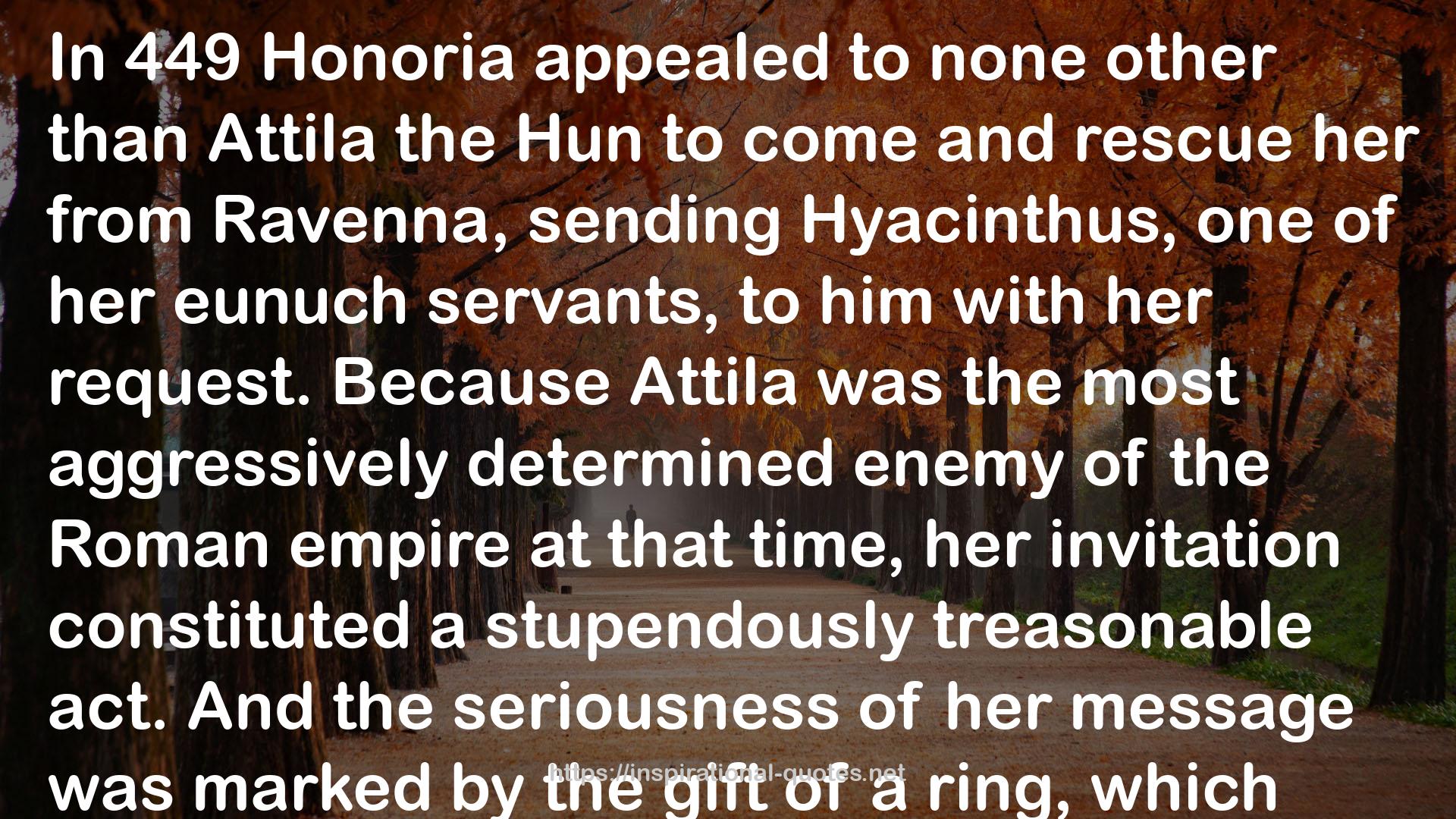" In 449 Honoria appealed to none other than Attila the Hun to come and rescue her from Ravenna, sending Hyacinthus, one of her eunuch servants, to him with her request. Because Attila was the most aggressively determined enemy of the Roman empire at that time, her invitation constituted a stupendously treasonable act. And the seriousness of her message was marked by the gift of a ring, which Attila interpreted as a proposal of marriage. If he could marry the imperial princess, sister of the western emperor, she might bring at least half the western provinces as her dowry! The dangers were clear enough to both Theodosius II and Valentinian, who reacted quickly. The eastern emperor recommended that Honoria be dispatched to the Huns straight away, which might have reduced the threat of invasion, but Valentinian had reservations about allowing his sister to marry the ‘scourge of God’, who was known to be polygamous. Instead, he punished his sister by exiling her from the court and executing her eunuch servant and other accomplices. Only Galla Placidia’s interventions and insistence upon the planned marriage to the senator Herculanus, secured Honoria’s restoration. In 452 Herculanus was named consul in Rome, a mark of the emperor’s gratitude for saving Honoria from total disgrace. "
― Judith Herrin , Ravenna: Capital of Empire, Crucible of Europe
